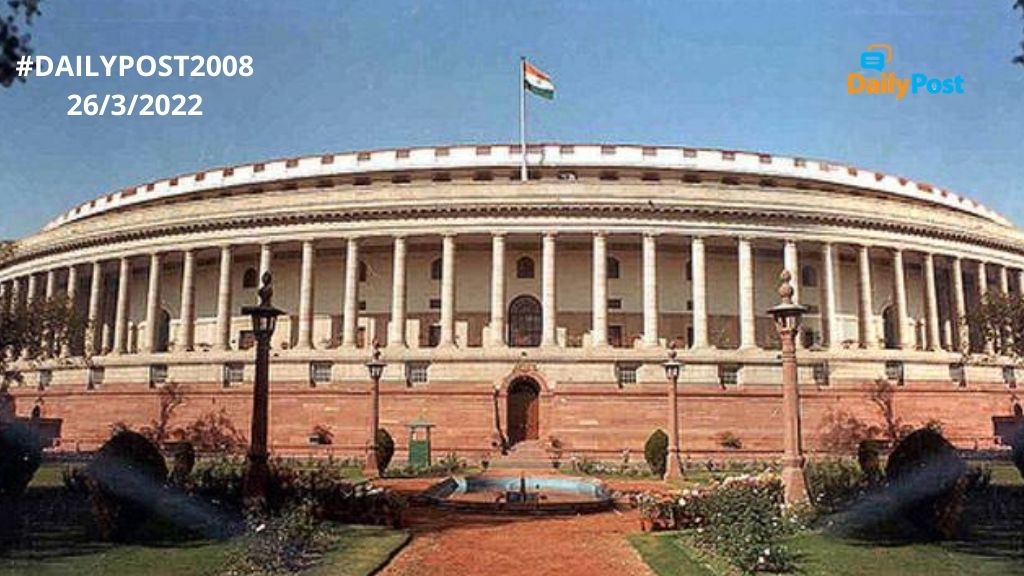DailyPost 2008
THE HOUSE OF ELDERS!
The Rajya Sabha or the Council of States as it is legally known in one of the houses of the bicameral Union Legislature of India. How elderly has been its approach in the last decade or so, needs an in-depth study? Has the Council of States behaved any differently from the directly elected House of Representatives or is it the number game, which just needs to be sorted out? The recent nominations and elections to the House from Punjab keeps bringing back the same issue to the table over and over again- the insider / outsider issue. Has everything in the world of electoral politics and elected representatives become a part of distribution of the spoils of elections. You win a state and you get Rajya Sabha seats as a bonus.
Today if we were to define the House of States, it would be extremely difficult to state its exact role. The Constituent Assembly in its wisdom suggested a bicameral legislature for independent India connecting to the fact that the federal system was considered to be more feasible form government, given our immense diversities. ”A second chamber known as ‘Council of States’, therefore, was created with an altogether different composition and method of election.’ Any elector to the parliamentary constituencies of the state, could fight for the election to Rajya Sabha. In 2003, the Representation of the People Act, 1951, it was amended to allow an outsider to get elected to a Rajya Sabha seat from a state. To create an outstandingly distinct debating / legal or state or contribution to federal ethos history of this house will certainly be an uphill task.
With this amendment, the 238 of 250 seats were up for grabs notwithstanding the states / union territories territorial boundaries. Council of States without the state’s territory being main consideration becomes superfluous. Every political party gains out of it. Helps in keeping the flock together, and a big carrot for the super loyalists and friends. The current status has not been tested for constitutional validity. What does an outside person know of the state and how does he subserve the states interests? When an All-India Service officer becomes a part of the state, he moves their lock, stock and barrel, and picks up everything that is required by the state. Part of the federal structure. Here it is free parachute landing. One nomination and it’s over. Things cannot be simpler.
If politicians cannot make it to the Lok Sabha and smarter still want a direct safe entry, then Rajya Sabha becomes a natural port of call. Pre 2003 even addresses have been played around with. Popular leadership is at the core of democracy, still even the Prime Minister has managed to come through this route. Perks and privileges of an enamoured everyone, we even have an ex leading judge as a member of the Rajya Sabha. He made it to the category of 12 persons who are nominated to this house ’having special knowledge or practical experience in respect of such matters as literature, science, art and social service.’ While the prerogative remains with the government, we can certainly have people who are interested in democracy and governance of this country, rather than just providing governmental perks to special knowledge / experience personalities, who have already made a successful life. It is rare to find differences in the method of passage of bills in this house. Numbers, elders’ acumen and federalism do not connect. Do we need this 250-member house? For all practical purposes, it has outlived its utility.
UTILITY OF A DEMOCRATIC INSTITUTION HAS TO BE FELT, SEEN, EXPERIENCED BY THE PEOPLE.
Sanjay Sahay

